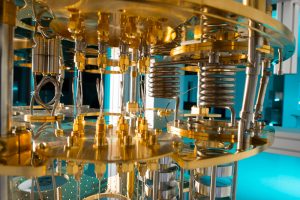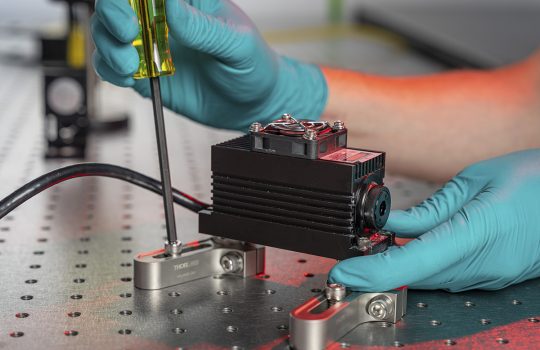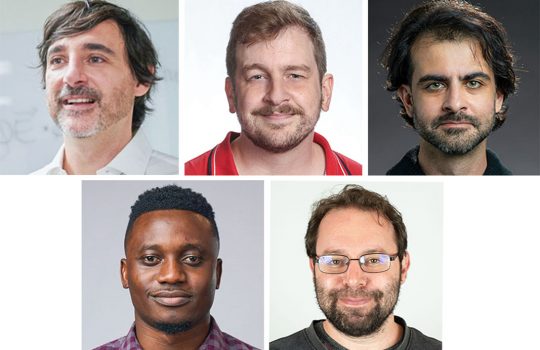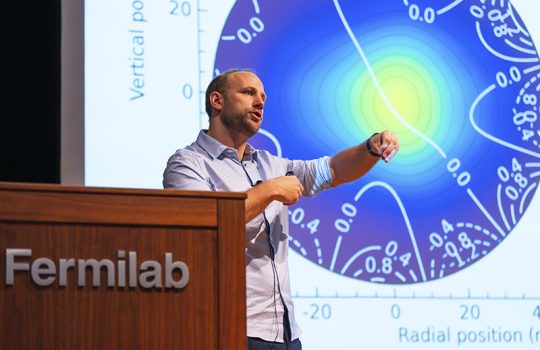
At the upcoming workshop, scientists will explore ways that the fields of high-energy physics and quantum information science can advance each other. It will also feature Google’s first public hands-on tutorial on their quantum software. Photo: Reidar Hahn
Solving the longstanding, seemingly intractable problems of particle physics is about to get one quantum step closer. (And ideas for quantum teleportation experiments might surface at the same time.)
From Sept. 12-14, scientists, engineers and members of industry from around the globe will converge at the Department of Energy’s Fermilab to explore quantum computing technologies for high-energy physics.
The hands-on workshop, “Next Steps in Quantum Science for High-Energy Physics,” will feature speakers from Google, IBM, and several universities and national laboratories. Renowned physicist John Preskill of Caltech will anchor the first day with an address on quantum information science. And for the first time in a public setting, Google will conduct a hands-on tutorial on their quantum computing software, giving attendees an opportunity to use it directly and meet face-to-face with company representatives.
“This is the world’s first offering for people in high-energy physics to use a quantum software package — and with the people who wrote it,” said Fermilab Chief Research Officer and Deputy Director Joe Lykken. “And the topics go beyond high-energy physics. The problems our field is trying to solve through quantum computing share extensive overlap with other fields, such as nuclear physics and scientific computing.”
Fermilab is a natural host for this first-of-its-kind workshop. As home to groundbreaking discoveries in particle physics and a pioneer in high-performance and supercomputing, Fermilab’s expertise at the intersection of these areas is world-class.
And now it is directing some of its considerable expertise to the area of quantum computing, which holds great promise for solving some of nature’s toughest problems. Quantum computers may be able to tackle in minutes problems that would take classical computers years to solve.
Google’s hands-on tutorials will provide a first taste of this approach. A Google team led by Product Manager Alan Ho will demonstrate the use of two different software packages: Cirq, a quantum computing programming framework that exposes the hardware detail to the programmer, and OpenFermion, a platform for translating problems in quantum chemistry and material science to quantum computers.
“It’s great that Fermi National Accelerator Laboratory has convened some of the best scientists to coming up with ideas for quantum computing,” Ho said. “I’m looking forward to hearing the different ideas and experiments that can be run on a quantum computer. We believe that Fermilab is a great partner for this.”
The feedback from participants, he added, will be valuable.
“We want to make the computers useful, so we need to hear the best ideas,” Ho said.
Topics include quantum simulation of quantum field theories, algorithms for traditional high-energy physics computational problems, quantum teleportation experiments and qubit technologies for quantum sensors.
“This is the meeting where scientists can say, ‘I have this problem, I want to solve it. How do I do that with quantum?’ and get an answer,” Fermilab’s Lykken said. “It’s going to be an exciting glimpse into ways we can advance the field.”



